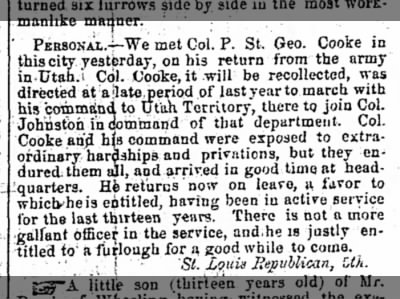Babbalanja:
And who lives that blasphemes? --Mardi: And a Voyage Thither
The narrator of "Scenes Beyond the Western Border" (the 1851-1853 magazine series, reprinted with later revisions as Part II of Scenes and Adventures in the Army):

But who lives, who may not be wounded through another! --August 1852 Scenes Beyond the Western Border; and Scenes and Adventures in the Army
Apemantus:
... Who lives, that's not
Depraved or depraves? Who dies, that bears
Not one spurn to their graves of their friends' gift? --Timon of Athens, Act 1 Scene 2
Who lives that’s not depravèd or depraves?
Who dies that bears not one spurn to their graves
Reading
Bruyère on the mortal limits of friendship, Herman Melville remembered what Apemantus says in the first act of
Timon and paraphrased in the margin:
"True, Shakespeare goes further. None die but somebody spurns them into the grave."
--quoted in Hershel Parker, Herman Melville: A Biography, Vol. 2, 1851-1891 (Johns Hopkins University Press, 2002), page 502.
True or false, friendship in the material world ends with death and burial. Bruyère's theme of temporal, conditional friendship, amplified by Shakespeare according to Melville, gets remarkably close to the essence of the narrator's lament in the August 1852 installment of "Scenes Beyond the Western Border." The narrating "Captain of U. S. Dragoons" continues in the
Timon vein normally employed by Frank, his cynical traveling companion:
I dare say, nay, I am sure, that beyond some family ties, there is not upon the wide earth a heart in sympathy with our good or ill; whose even beat would be as much disturbed, were this wild sod to cover us forever, as the most ephemeral of the trifling cares which make up their petty lives."
Eventually our Captain recovers his romantic self, however. Ready to embrace Illusion over intolerable Truth, exemplifying the "heroism" of "blind credulity," he eloquently urges belief in
"a pure soul love, — a deathless friendship,
which all life's trials and worldly baseness cannot soil or
sap."





